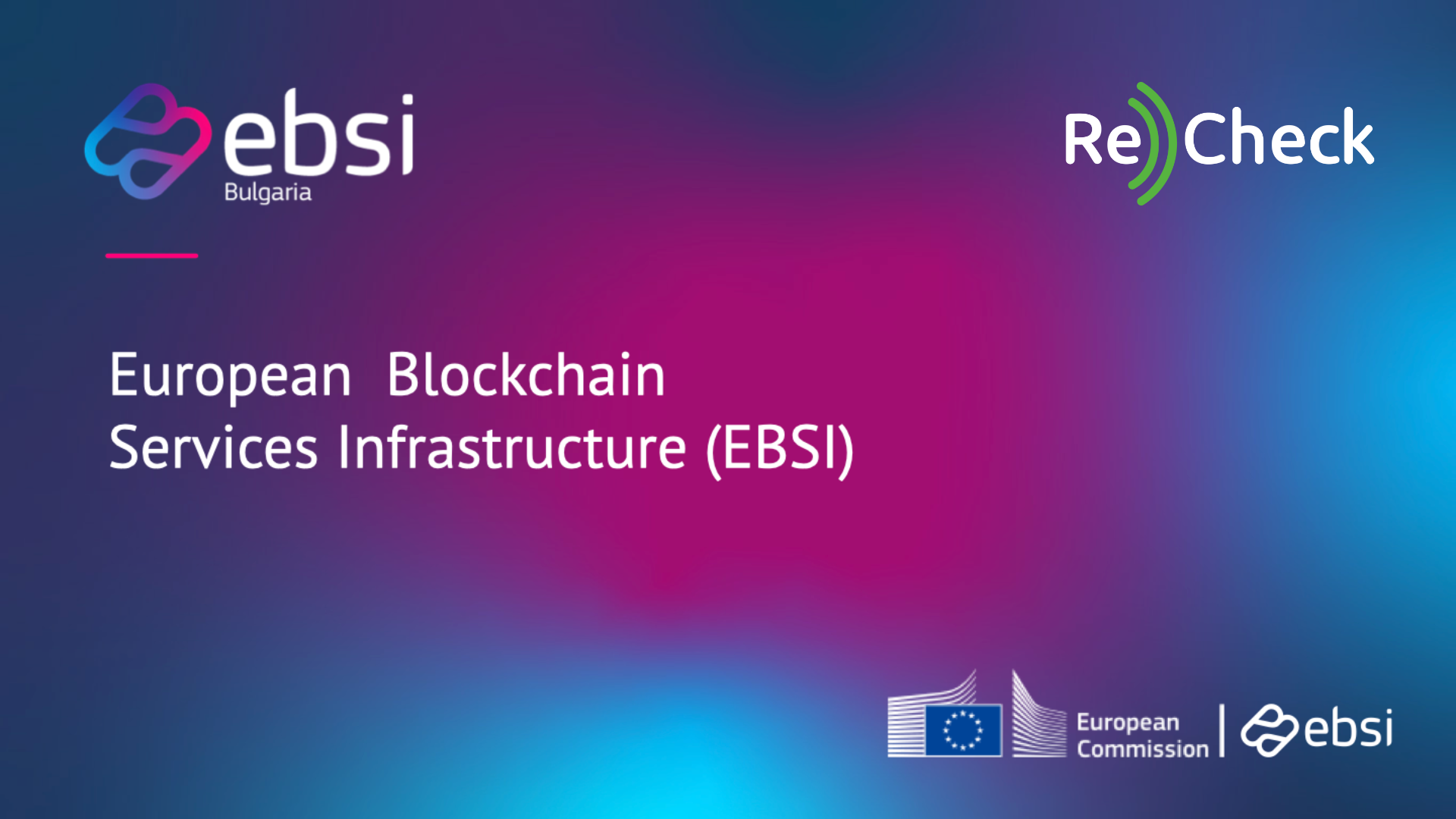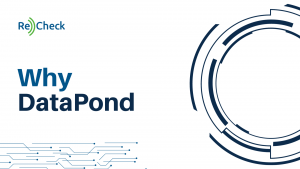ReCheck is proud to announce that we have completed implementing the Bulgarian part of The European Blockchain Services Infrastructure (EBSI). Our company set up the pilot nodes of EBSI in Bulgaria and developed applications for two use cases – sovereign digital identity and document traceability. The activities are related to a project contracted by the Innovation and Networks Executive Agency (INEA) under the Connecting Europe Facility (CEF). Industria Technology and The Edge are the other two companies actively implementing the project (together with ReCheck, presented in this article as EBSI Bulgaria).
The European Blockchain Services Infrastructure (EBSI) is a joint initiative between all EU Member States, Norway, and Liechtenstein. Since 2020, the EBSI partners have established a network of distributed nodes across Europe, creating an environment where different use cases can be explored and improved. EBSI aims to connect Europe better with fewer administrative barriers, cheaper, and safer, focusing on cross-border services of public administrations to validate information and trust services. The initiative is aligned with the trends in the EU focused on establishing the digital sovereignty of the citizens, regaining user control over data, and fostering secure digitalisation of the public and private sectors. EBSI promotes efficient data sharing between the Member States based on the emerging standards of exchanging verifiable credentials.
EBSI Bulgaria includes diverse Bulgarian professionals in blockchain development, education, and project management. The partners in the consortium contribute their expertise to make these use cases possible. Industria provides Project Management, Governance and Legal, and Dissemination and Exploitation support, while The Edge is responsible for setting up and maintaining the national helpdesk and classroom and online training. ReCheck led the technical implementation and provided the software deliverables.
The team paved the way for the EBSI adoption in Bulgaria and pioneered the first prototypes that showcase the value of the technology for the institutions and the general audience. Furthermore, educational and marketing campaigns promoted EBSI in the region and raised awareness about its current and potential capabilities to transform the provision of public services and data management. The results of both use cases are presented below.
Use Case 1: Digital Identity
The first use case is based on the waltID solution, a platform that aims to make solutions for decentralised identities and is one of the recommended solutions by EBSI. ReCheck developed this use case using its wallet toolkit and extended, and simplified where needed the system to work only with verifiable credentials (VCs) for digital identity, allowing users to focus on what the system is capable of. The platform’s goal is to create the user’s digital identity and use the blockchain as a layer of trust when interacting with different parties. The platform also offers solutions to verify and validate the identity of a user or organisation. The company’s ultimate goal is to create a secure and trusted place for digital transactions without intermediaries.
Use Case 2: Document Traceability
The second use case is document traceability, software to protect and track the status of a document. The use case is implemented via registering documents on the EBSI blockchain and generating a digital footprint of the document in hash form. When that document becomes relevant for a transaction or event, it can be checked to see if it is authentic and if there is a last-minute change. A simple user interface enables easy verification and serves as a digital notary service certifying the validity of the documents. The other feature of this application is that you can pass the hash that is the result of the snapshot to check if it matches any document.
The document traceability application is ready for testing and adoption in the public sector in the EU. It is perfect for digitalising public registries and making them more accessible to citizens. The open-source software is a meaningful contribution to EBSI’s tools and infrastructure components portfolio.
Overall, the EBSI Bulgaria project is an excellent example of how European countries are collaborating to improve cross-border services through the use of blockchain technology. The collaborative work of ReCheck and the other partners on the development of these use cases puts EBSI on track to achieve its goals of improving the efficiency and security of public administration services across Europe.






